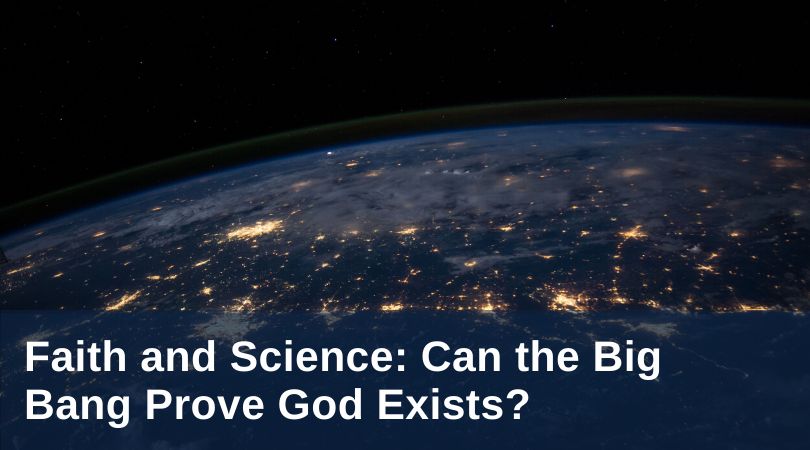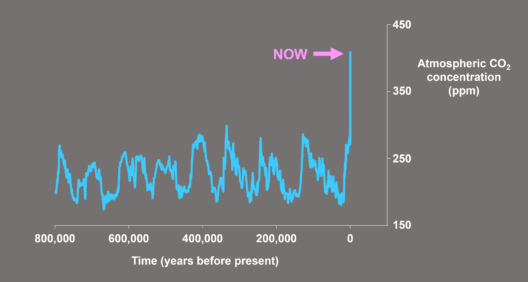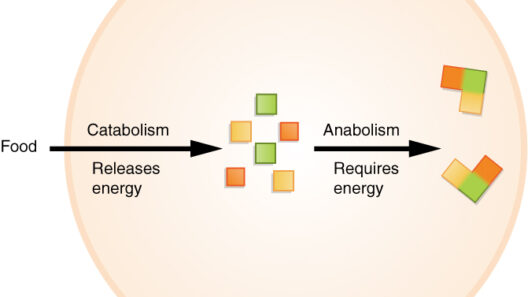The age-old query of humanity’s existence often intersects with scientific inquiry, particularly concerning the origins of the universe. At the fulcrum of this debate lies the conservation of energy and the enigmatic Big Bang theory. Some may wonder, can the principles of energy conservation substantiate the existence of God or perhaps elucidate the cataclysmic event that birthed the cosmos? This inquiry invites a multifaceted exploration of physics, philosophy, and theology.
The law of conservation of energy posits that energy cannot be created or destroyed, only transformed. This principle forms the bedrock of much of modern physics. Imagine a majestic river that, through constant flow, nourishes various ecosystems along its banks. The energy it harbors does not vanish; rather, it metamorphoses, contributing to the vitality of countless forms of life. This metaphor illustrates how energy is in a perpetual state of flux. In parallel, one could hypothesize that the very energy that underpins our universe reflects a divine orchestration, suggesting the presence of a higher power. Could it be that this river of energy is a manifestation of an omnipotent creator, guiding all existence?
Adherents of the Big Bang theory, particularly contemporaneous astrophysicists, illuminate the universe’s inception as a moment when density and temperature skyrocketed, leading to expansion. This paradigm shift transforms our understanding of cosmology. Yet, this celestial explosion does not necessarily negate the possibility of a divine creator. Instead, it potentially complements theological interpretations. The Big Bang may not be the ultimate conclusion but rather a prelude to an energetic symphony, orchestrated by a master craftsman who conceived the primordial singularity.
Intriguingly, the notion of energy transformation explains much about evolution and creation. Quantum mechanics introduces the idea that particles can exist in multiple states simultaneously. This probabilistic nature ignites a dialogue between faith and science. It beckons the question—can randomness and divine control coexist? Life’s complexity and diversity arise not merely from serendipity but perhaps from an intelligent design entwined with the random intricacies of the universe’s fabric.
Moreover, when examining the philosophical implications of energy conservation, one may consider the universe as an intricately woven tapestry. Each thread represents a particle, a moment, or an idea. The threads pull and push against one another, creating patterns that can symbolize chaos or coherence depending on one’s perspective. Hence, this metaphorical tapestry can be perceived as either an entirely random assortment of threads or the deliberate handiwork of a creator. This duality presents a unique appeal—can one truly fathom the tapestry’s final design without contemplating its weaver?
In the realm of science, when contemplating the futility of entropy—the tendency for systems to evolve towards disorder—we grapple with existential questions about the universe’s ultimate fate. With every dying star and fading galaxy, the cosmos edges closer to an energy equilibrium. Some argue that this inevitable decline implies insignificance, while others view it through the lens of sacred meaning. If energy is preserved, then perhaps existence itself is part of a greater design. This interpretation invokes the idea of a cosmic balance, enabling belief in a purposeful creation amidst apparent entropy.
The conservation of energy also has implications for morality and ethics. If one accepts the premise that energy is continually exchanged, the interconnectedness of all beings becomes evident. The reverberations of every action—however minute—produce ripples throughout the universe. Hence, could this interdependence suggest a moral dimension to our stewardship of the planet? An ethical imperative motivated not solely by survival, but by a recognition of the sacredness of existence, could be interpreted as a reflection of divine consciousness within us.
Philosopher Immanuel Kant postulated that while reason may be incapable of proving the existence of God, morality suggests a higher moral law. This nexus of moral law and energy conservation can pivot the conversation toward a moral universe grounded in cosmic laws. If every act of conservation of energy contributes to the greater good, it aligns with a divine moral framework predicated on interconnectivity and stewardship. Hence, the inquiry into the existence of God may not need empirical evidence; perhaps it is manifested through our functions and responsibilities within the universe.
Additionally, the scientific exploration of dark energy and dark matter—components that govern the expansion of the universe—opens yet another frontier of inquiry. The mysterious nature of these elusive elements may signify that our understanding remains incomplete. Could the gaps in knowledge point towards the divine? The desire for comprehension itself might stem from a divine spark that drives humanity to explore the unknown frontier. This metaphysical pursuit cultivates an intrigue that lies at the intersection of faith and inquiry.
As we navigate these philosophical waters, the question resurfaces: can the conservation of energy substantiate the existence of God or illuminate the Big Bang’s mysteries? While the answer may hover tantalizingly out of reach, the dialogue burgeons with potential. The interplay of science and spirituality teases threads of interconnectedness, purpose, and moral reflection. The grand tapestry of existence, woven with care, begs us to ponder both the intricate details and the broader strokes, inviting interpretation and communion.
In summary, while science offers a lens through which the equations of the universe may be understood, spirituality enriches this comprehension with a sense of purpose. As we engage with the conservation of energy, let us remain steadfast in our exploration, poised to uncover the infinite possibilities that lie ahead, bridging the chasm between empirical understanding and the profound mysteries that fuel our search for meaning.








